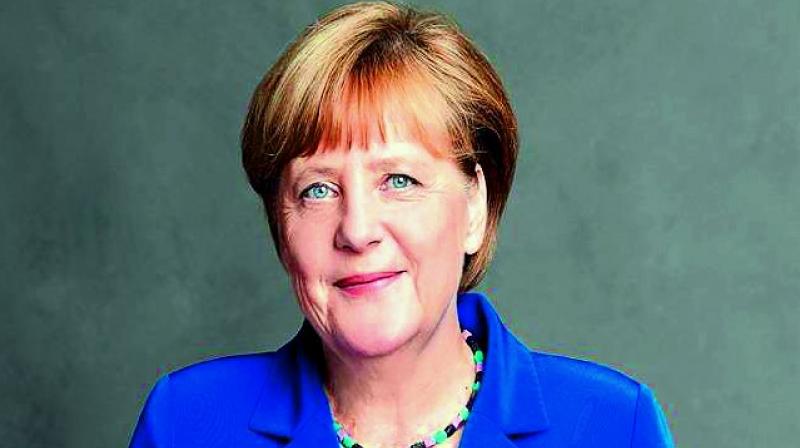Angela Merkel resigns as CDU leader, loyalist wins party leadership

Hambur: German Chancellor Angela Merkel handed off leadership of her party on Friday after nearly two decades at the helm, with the race wide open between a loyal deputy and a longtime rival.
The contest's outcome is expected to be crucial in deciding whether Merkel, Europe's most influential leader, can realise her stated goal of completing her fourth term in 2021 and then leaving politics.
Merkel, 64, is quitting the helm of her conservative Christian Democratic Union (CDU) after a series of poll setbacks rooted in controversy over her liberal refugee policy.
“I'm very grateful that I could be party chairwoman for 18 years -- it is a very, very long time and the CDU of course had its ups and downs,” Merkel said.
“But we won four national elections together... and I am happy I can remain chancellor.” Merkel has led Germany since 2005, and moved the party and country steadily toward the political centre. More generous family leave, an exit from nuclear power and an end to military conscription were among her signature policies.
The two main candidates, CDU deputy leader Annegret Kramp-Karrenbauer (known as AKK) and corporate lawyer Friedrich Merz, are locked in a battle over whether to embrace or break with the veteran chancellor's legacy.
A third contender, Health Minister Jens Spahn, 38, an outspoken critic of Merkel's 2015 decision to welcome more than one million asylum seekers to Germany, is seen as being in a distant third place.
While AKK, 56, is viewed as a keeper of the flame and similar to Merkel with an even temper and middle-of-the-road policies, Merz, 63, has become the torchbearer for those seeking a more decisive break with the chancellor.
“The Merkel era is palpably coming to an end,” political journalist and AKK biographer Kristina Dunz said. “Merz could be tempted to see his revenge and lunge for power (as soon as next year).” This week Merz, who has insisted in the face of widespread scepticism that he could work well with Merkel, won the backing of powerful former finance minister Wolfgang Schaeuble, now the parliamentary speaker.
Both men are seen as harbouring longstanding grudges against the chancellor, after she thwarted Schaeuble's ambition to become German president and Merz's desire to remain CDU parliamentary group leader several years ago.
“Schaeuble's manoeuvre shows: the CDU of the old Germany is trying to make a comeback,” news weekly Der Spiegel said.
“It is the CDU of the (former chancellor Helmut) Kohl years, in which men like Schaeuble and Merz barked orders like military officers and women usually made the coffee.” National broadsheet Sueddeutsche Zeitung said Schaeuble's move signalled that the CDU's long-festering divisions, thinly veiled by unity behind Merkel, could well break out in the open after the conference.
“The CDU of the Merkel years is falling apart,” it said. “Opposing camps are forming.” Few observers have dared to predict how the 1,000 delegates -- political and party office holders -- will vote.

